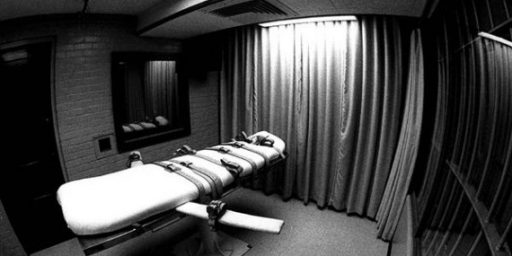D.C. Safety Stops Questioned
Safety Stops Draw Doubts (WaPo, B1)
Lisa Davis had done nothing wrong. She was wearing a seat belt, was obeying the speed limit and produced a valid driver’s license when D.C. police pulled her over one recent night at a traffic safety checkpoint in a crime-plagued neighborhood. Even so, an officer jotted down some basic information before letting her go, including her name, address and the time and location of the stop for a police database used for crime solving. “I’ve got some serious constitutional issues with that,” Davis said as she sat in her idling Acura at the checkpoint at Kansas Avenue and Shepherd Street NW in the Petworth neighborhood. “I feel like it’s a violation of my rights. It’s a slippery slope to Big Brother.”
The details about Davis and the stop will be fed into the database, which is linked to a computer that includes arrest records and mug shots of criminals. The database allows a detective, for example, to enter into the computer the description of a car that fled a crime scene in hopes of finding a match from a traffic checkpoint.
The city’s practice of recording information at traffic safety checkpoints on violators and law-abiding motorists alike — and sometimes their passengers — has garnered little attention since police began entering such data into a computer in 2002. Few, if any, of the more than 100 people pulled over almost nightly at the five or six checkpoints in high-crime areas realize that their names and whereabouts will end up in the database.
Like Radley Balko, this strikes me as problematic although something that would likely pass constitutional muster. The police should not have the right to detain people just for the hell of it. According to a string of Supreme Court decisions in recent years, however, they do.






Justice Thomas added in a footnote to one recent case that he was skeptical of the Constitutionality of all random stops. However, the argument wasn’t made in that particular case. That case was about a search after drug or alcohol stop, and the defendent argued that those were illegal but didn’t challenge the stops themselves or all stops in general; hence the Court didn’t rule on that question.
Seems to me that if enough people are victimized in this way, they ought to record the name of the perpetrating officer and his or her superiors and then someone ough to consider building a database, perhaps online, of police officers and departments who regularly harass the innocent.
Considering how many DC children have been killed in unsolved shootings by illegal guns recently, don’t the DC cops have something better to do with their time?